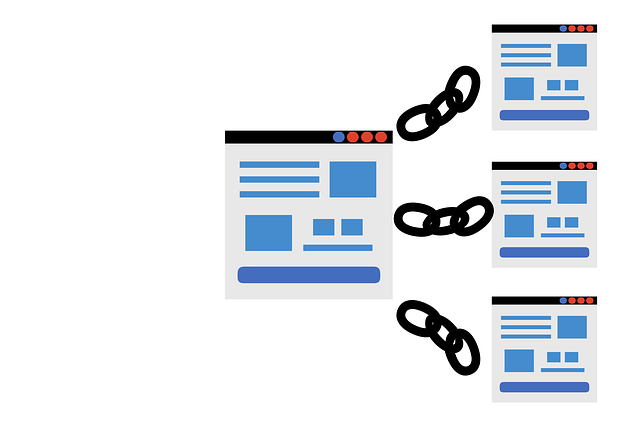PBN Link Building Risks
Potential Risks of PBN Link Building
PBN link building poses significant risks to a website’s SEO strategy. One of the main concerns is the violation of search engine guidelines, which can lead to penalties and even the complete deindexing of a site. By relying on private blog networks to artificially inflate backlink profiles, websites run the danger of being caught in Google’s algorithmic filters, resulting in a severe drop in organic search rankings.
Moreover, utilizing PBNs can tarnish a website’s reputation and credibility in the eyes of both users and search engines. The practice goes against the principles of organic link building and can erode trust with visitors and potential customers. Additionally, the links obtained from PBNs are often of low quality and irrelevant to the website’s niche, further compromising the site’s authority and authenticity.
Identifying Footprints that Could Lead to Penalties
A common mistake in PBN link building is leaving detectable footprints that could eventually lead to penalties from search engines. These footprints can include similarities in hosting providers, IP addresses, domain registration details, content structure, or linking patterns across multiple websites. Search engines are becoming increasingly sophisticated in detecting these footprints, making it essential for SEO professionals to be vigilant in concealing their PBN networks.
One effective strategy to avoid leaving footprints is by diversifying hosting providers, IP addresses, and domain registration information for each website in the PBN. Varying content structure, themes, and linking patterns can also help obscure the connection between the websites. Regularly monitoring and updating these elements can reduce the risk of search engines identifying the network and penalizing the websites involved. By paying attention to these details and implementing best practices for PBN management, webmasters can minimize the risks associated with using private blog networks for link building.
Impact on Organic Search Rankings
PBN link building can have a significant impact on the organic search rankings of a website. When used strategically and cautiously, PBNs can potentially boost a site’s visibility in search engine results. However, relying heavily on PBNs for link building can also pose risks of incurring penalties from search engines like Google, which could ultimately result in a drop in organic search rankings. It is crucial for website owners and SEO professionals to carefully consider the long-term consequences of utilizing PBNs as part of their link building strategy.
The use of PBNs to manipulate search rankings goes against Google’s guidelines and can lead to severe penalties, including being deindexed from search results. This not only impacts the rankings of the affected website but also tarnishes its online reputation. As search engines continue to evolve and crack down on black hat SEO tactics, it is imperative for website owners to prioritize building high-quality, natural backlinks that adhere to ethical standards. Failure to do so could result in devastating repercussions for a website’s organic search rankings in the long run.
Google’s Stance on Private Blog Networks
Google has made its position clear when it comes to Private Blog Networks (PBNs). The use of PBNs to manipulate search engine rankings goes against Google’s Webmaster Guidelines, as it constitutes a deceptive practice. Google considers PBNs as a violation of their policies, as they are seen as a way to artificially inflate a website’s authority without providing genuine value to users. Websites that are found to be associated with PBNs risk facing severe penalties, including being removed from search results entirely.
Website owners and SEO professionals need to be aware that Google actively works to identify and penalize websites that engage in PBN link building tactics. It is essential to prioritize building high-quality, natural backlinks that are obtained through ethical and sustainable practices. By adhering to Google’s guidelines and focusing on creating valuable content that attracts genuine links, websites can establish long-term success in organic search rankings without resorting to risky strategies like PBNs.
Quality vs Quantity: The Dangers of Low-Quality PBNs
Low-quality Private Blog Networks (PBNs) pose significant risks to websites seeking to improve their search engine rankings through link building strategies. While the allure of quick and easy backlinks may be tempting, the consequences of utilizing low-quality PBNs can far outweigh the benefits. Websites that engage with these dubious networks often find themselves facing penalties from search engines, resulting in a significant drop in organic search rankings and potential loss of credibility.
In the realm of SEO, the emphasis should always be on quality over quantity when it comes to building backlinks. Low-quality PBNs not only fail to provide valuable link juice but also raise red flags for search engines, leading to potential penalties. It is imperative for website owners and SEO professionals to prioritize ethical and sustainable link building practices to safeguard their online presence and reputation.
Understanding the Difference Between White Hat and Black Hat SEO
White hat SEO refers to the practice of optimizing a website in a way that aligns with search engine guidelines and aims to provide value to users. This approach focuses on creating high-quality content, improving website usability, and building organic backlinks through authentic means. White hat SEO strategies prioritize long-term sustainability and aim to enhance a website’s visibility in search engine results pages through ethical practices.
In contrast, black hat SEO involves techniques that manipulate search engine algorithms to achieve quick but unsustainable results. These tactics often include keyword stuffing, cloaking, and purchasing links from irrelevant or low-quality websites. Black hat SEO disregards search engine guidelines and focuses on exploiting loopholes for short-term gains, risking penalties and long-term damage to a website’s reputation.
Legal Ramifications of Using PBNs for Link Building
Engaging in Private Blog Networks (PBNs) for link building purposes can present a myriad of legal implications for website owners and marketers. One significant concern revolves around potential violations of search engine guidelines and regulations. By manipulating search engine rankings through artificial means, such as PBN link schemes, individuals may find themselves at risk of facing penalties for breaching terms of service agreements. This not only jeopardizes the online visibility of a website but also raises ethical questions regarding the authenticity of the digital landscape. Furthermore, the use of PBNs could lead to copyright infringement if content from third-party websites is used without permission, exposing parties involved to legal actions for intellectual property violations.
The Importance of Diversifying Your Link Building Strategy
Diversifying your link building strategy can be a crucial factor in maintaining a healthy and sustainable online presence. Relying solely on one type of link building method could leave your website vulnerable to algorithm changes or penalties. By incorporating a variety of tactics such as guest posting, social media engagement, influencer partnerships, and content marketing, you can establish a more robust and diverse backlink profile that appears natural to search engines.
Moreover, diversification not only helps in mitigating risks associated with algorithm updates but also enhances the overall authority and credibility of your website. By earning links from a range of reputable sources, you signal to search engines that your site is a valuable and trustworthy resource. This broad approach to link building not only strengthens your SEO efforts but also establishes a solid foundation for long-term success in the competitive online landscape.
How to Safeguard Your Website from PBN Link Building Risks
Ensure the safety of your website by proactively monitoring your backlink profile on a regular basis. Implement tools like Google Search Console or third-party SEO platforms to keep a close eye on the quality and nature of incoming links. Look out for any sudden spikes in backlinks from suspicious sources or irrelevant anchor texts, as these could be indicators of PBN link building activities.
Furthermore, consider conducting regular link audits to identify and disavow any toxic backlinks that may have been acquired inadvertently. By staying vigilant and promptly addressing any questionable backlinks, you can mitigate the risks associated with PBNs and preserve the integrity of your website’s link profile. Remember, prevention is key when it comes to safeguarding your website from potentially harmful link building strategies.
Detecting and Disavowing Toxic Backlinks
Detecting toxic backlinks is a crucial task for any website owner looking to maintain a healthy link profile. One effective method is to utilize tools such as Google Search Console or third-party software to analyze the quality and source of backlinks pointing to your site. Look out for links from low-quality or irrelevant websites, as these can indicate potential toxicity. Additionally, pay attention to anchor text diversity and suspicious patterns that may suggest manipulative link building practices.
Disavowing toxic backlinks involves submitting a disavow file to Google through Search Console, requesting the search engine to ignore specific backlinks when assessing your site’s authority. It is essential to thoroughly document and understand which backlinks you are disavowing to prevent accidental removal of valuable links. Regularly monitor your backlink profile and update your disavow file as needed to ensure a clean and high-quality link profile that aligns with Google’s guidelines.
Alternative Strategies for Building High-Quality Backlinks
One effective strategy for building high-quality backlinks is through guest blogging on reputable websites within your industry. By creating valuable and informative content for these websites, you not only establish yourself as an authority in your field but also have the opportunity to include backlinks to your own site. This not only helps drive traffic to your website but also signals to search engines that your site is a credible source of information.
Another way to generate high-quality backlinks is through relationship building with other websites and businesses. Networking within your industry can lead to collaborations, partnerships, and opportunities for backlink exchanges. By forming these mutually beneficial relationships, you can naturally acquire backlinks from reputable sources, improving your website’s authority and credibility in the eyes of search engines.
Case Studies of Websites Penalized for PBN Link Building
Many websites have fallen victim to penalties imposed by search engines due to their involvement in utilizing Private Blog Networks (PBNs) for link building purposes. These penalties are issued by search engines like Google as a means of enforcing their guidelines and maintaining the integrity of search results. When websites are found to be engaging in manipulative tactics such as PBN link building, they risk facing severe repercussions that can significantly impact their online visibility and credibility.
One prominent case involved a popular e-commerce site that saw a drastic drop in organic search rankings after being caught using PBN links. Despite initially experiencing a boost in rankings, the website eventually faced a manual penalty from Google, leading to a substantial decline in traffic and conversions. This case serves as a stark reminder of the risks associated with resorting to questionable link building practices, emphasizing the importance of adhering to ethical and sustainable strategies to avoid detrimental consequences.
Expert Tips for Successful and Safe Link Building Practices
To ensure successful and safe link building practices, it is essential to focus on creating high-quality content that naturally attracts backlinks from reputable websites. By producing valuable and relevant content, you can earn backlinks organically, without resorting to risky strategies like Private Blog Networks (PBNs). Building relationships with industry influencers and engaging with your target audience can also help in gaining natural backlinks.
Additionally, conducting regular link audits to identify any toxic backlinks pointing to your website is crucial for maintaining a healthy link profile. By using tools like Google Search Console and third-party link analysis tools, you can detect harmful links and take necessary actions to disavow them. Staying proactive in monitoring your backlink profile and staying updated on search engine algorithms can further safeguard your website from potential penalties and ensure sustainable link building practices.






